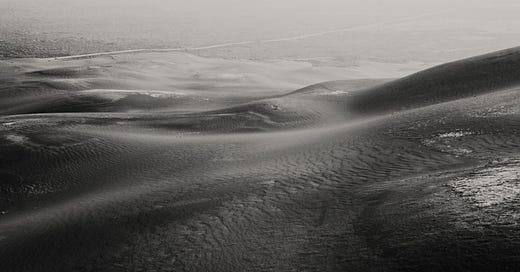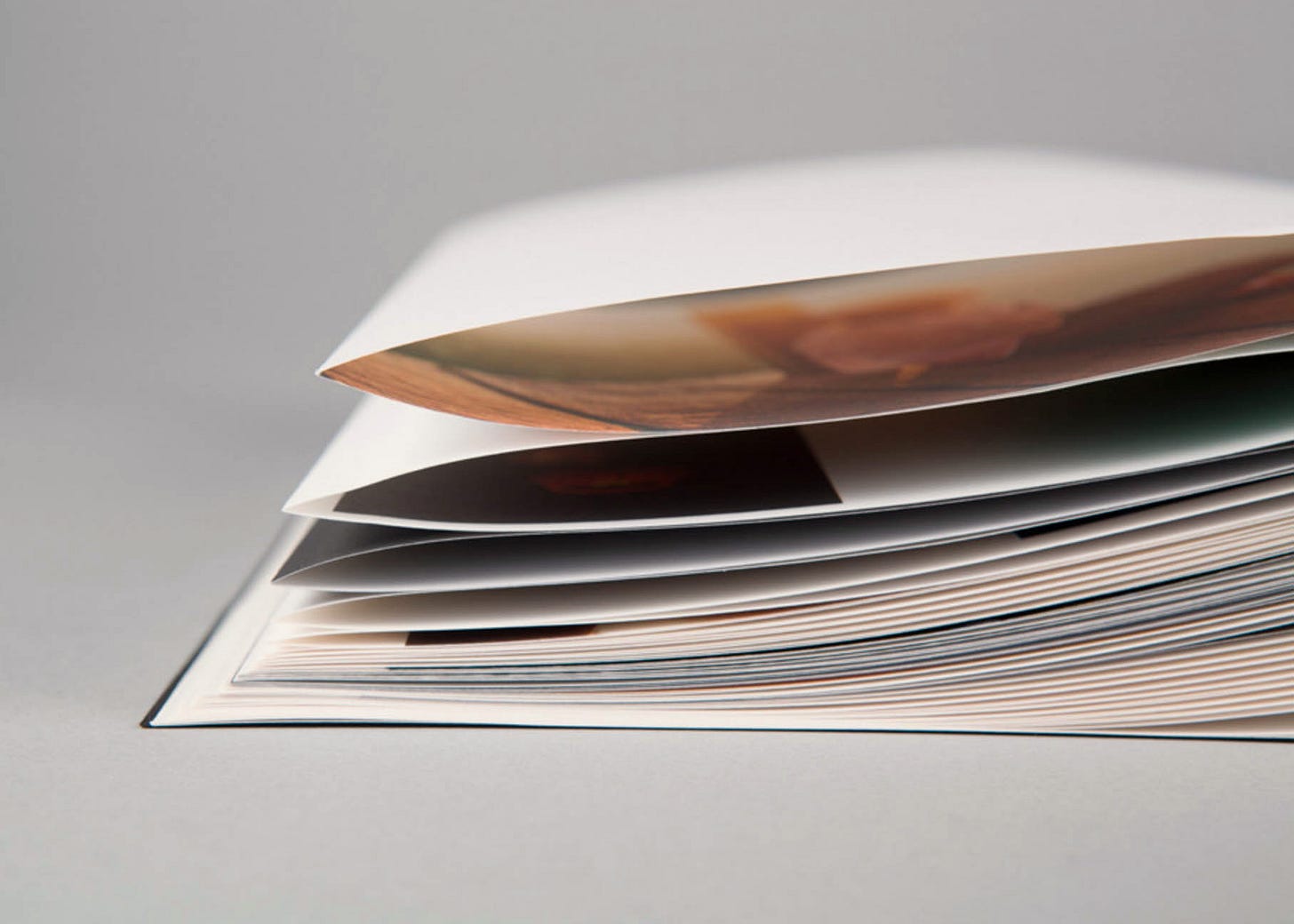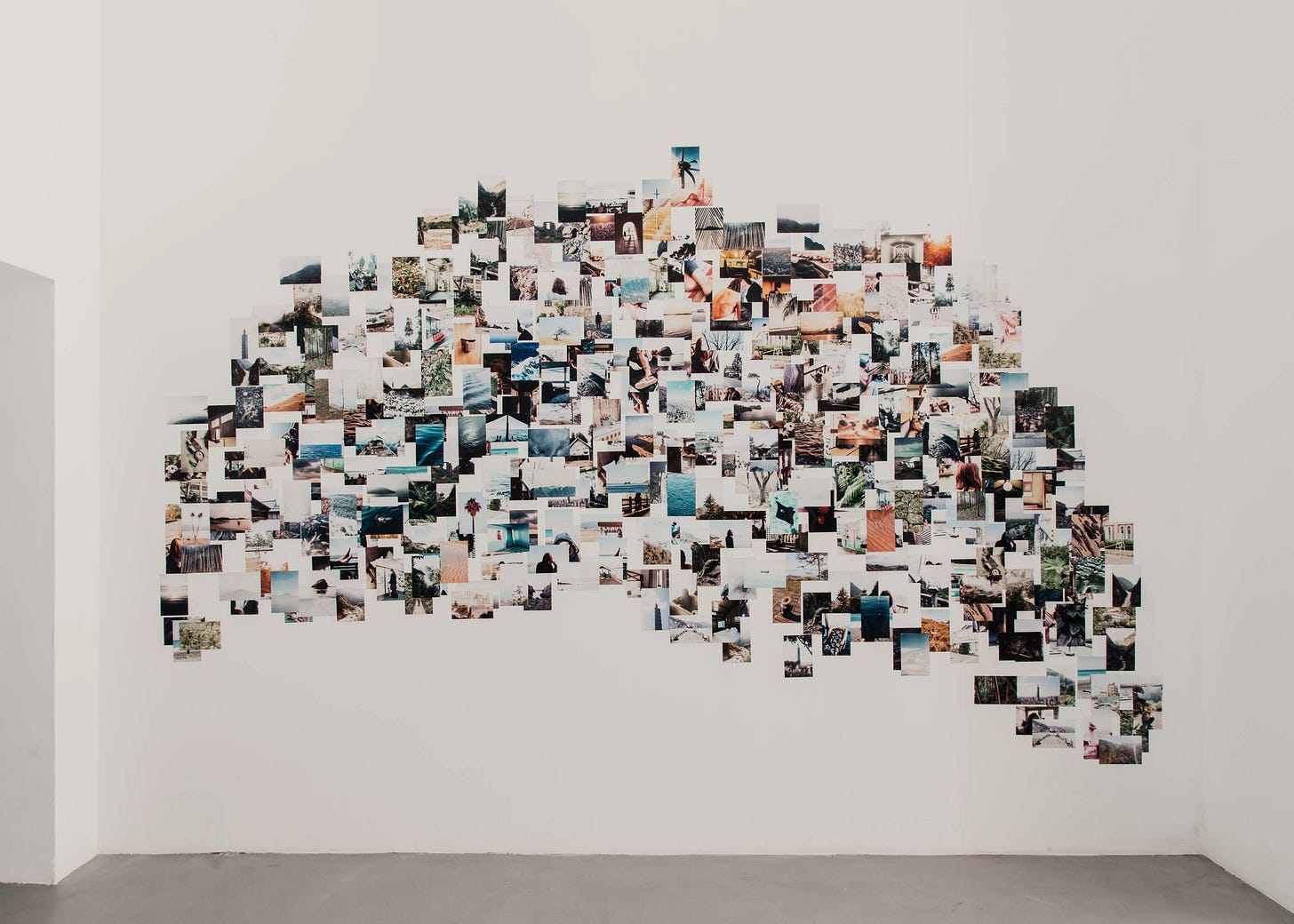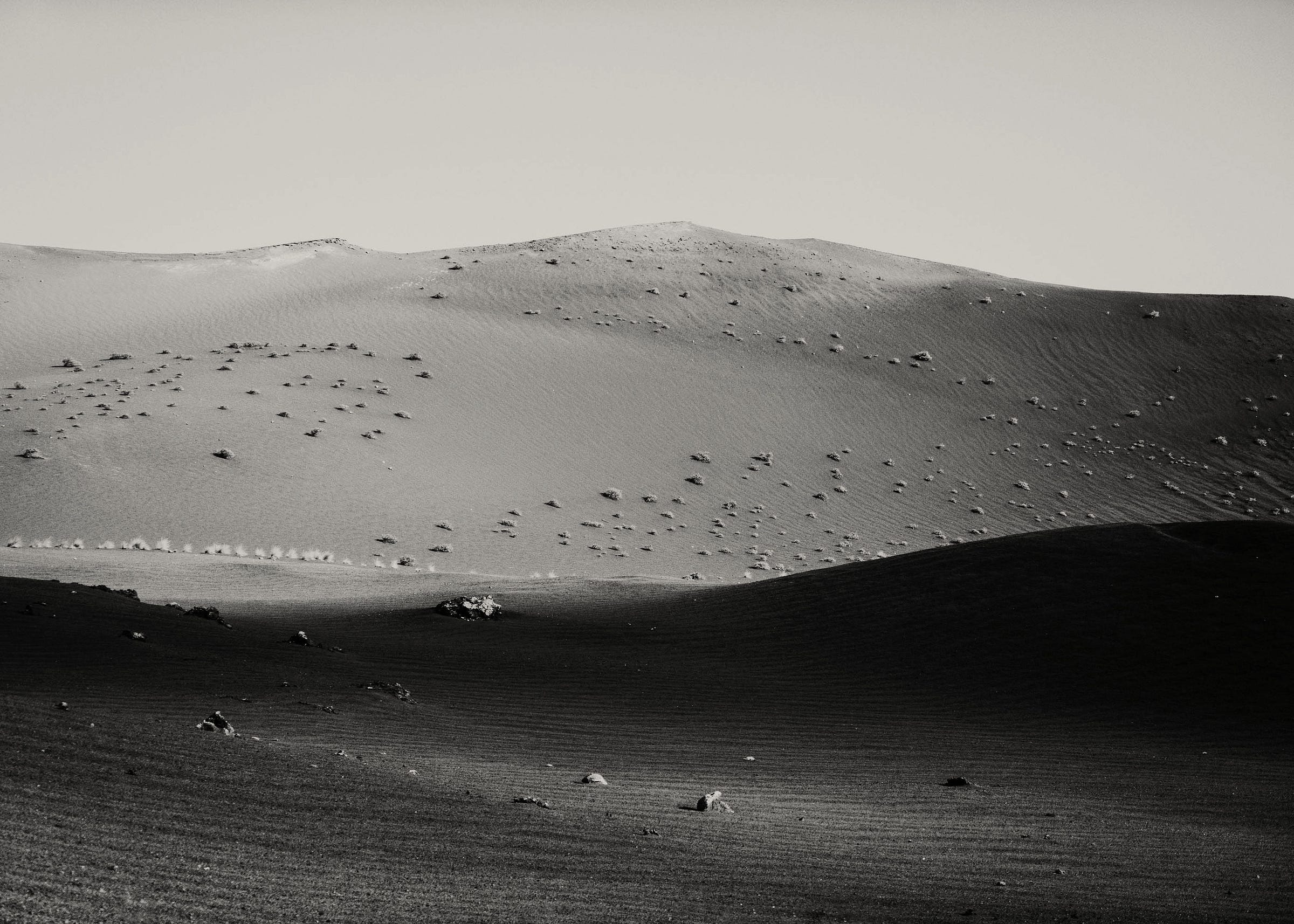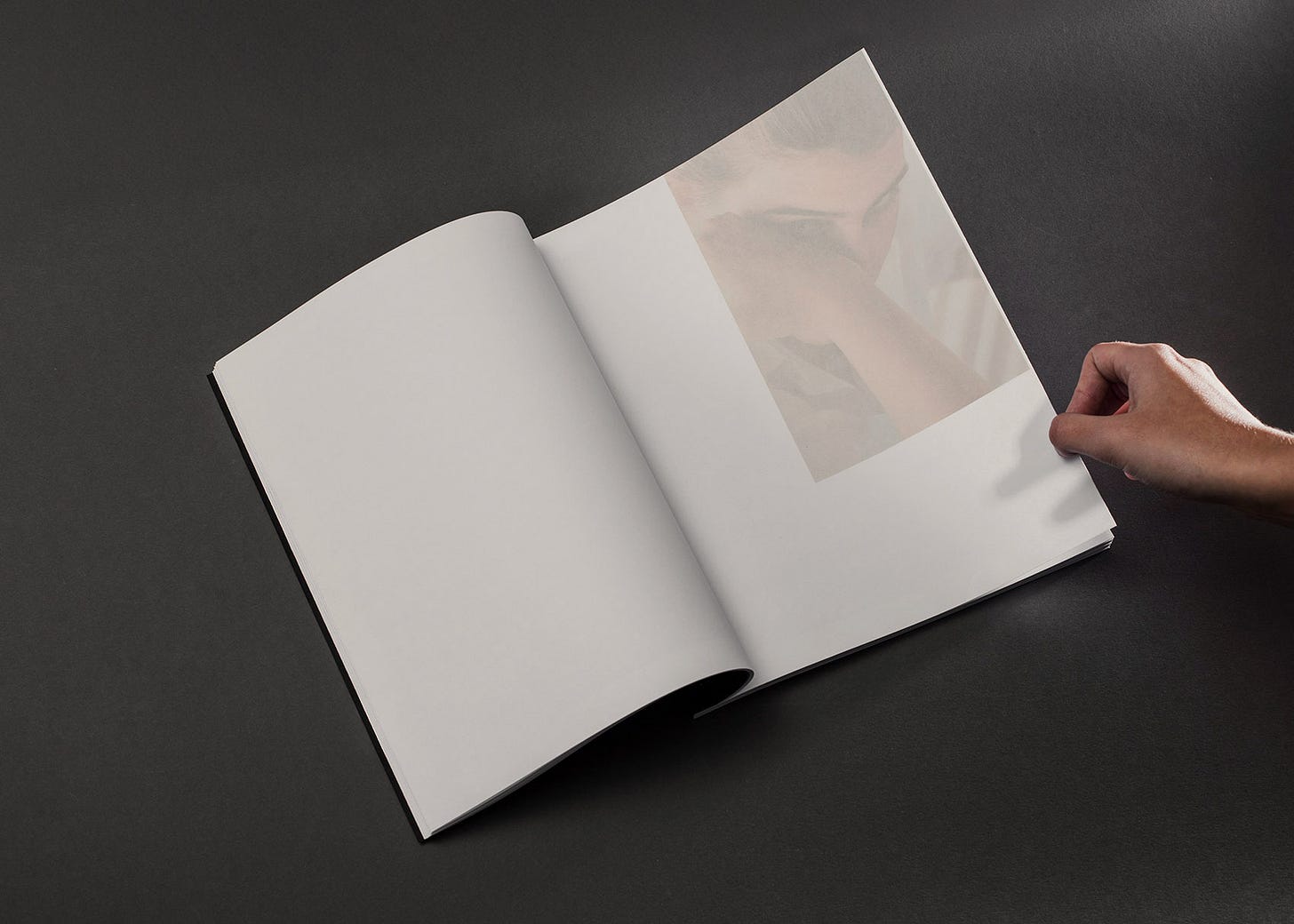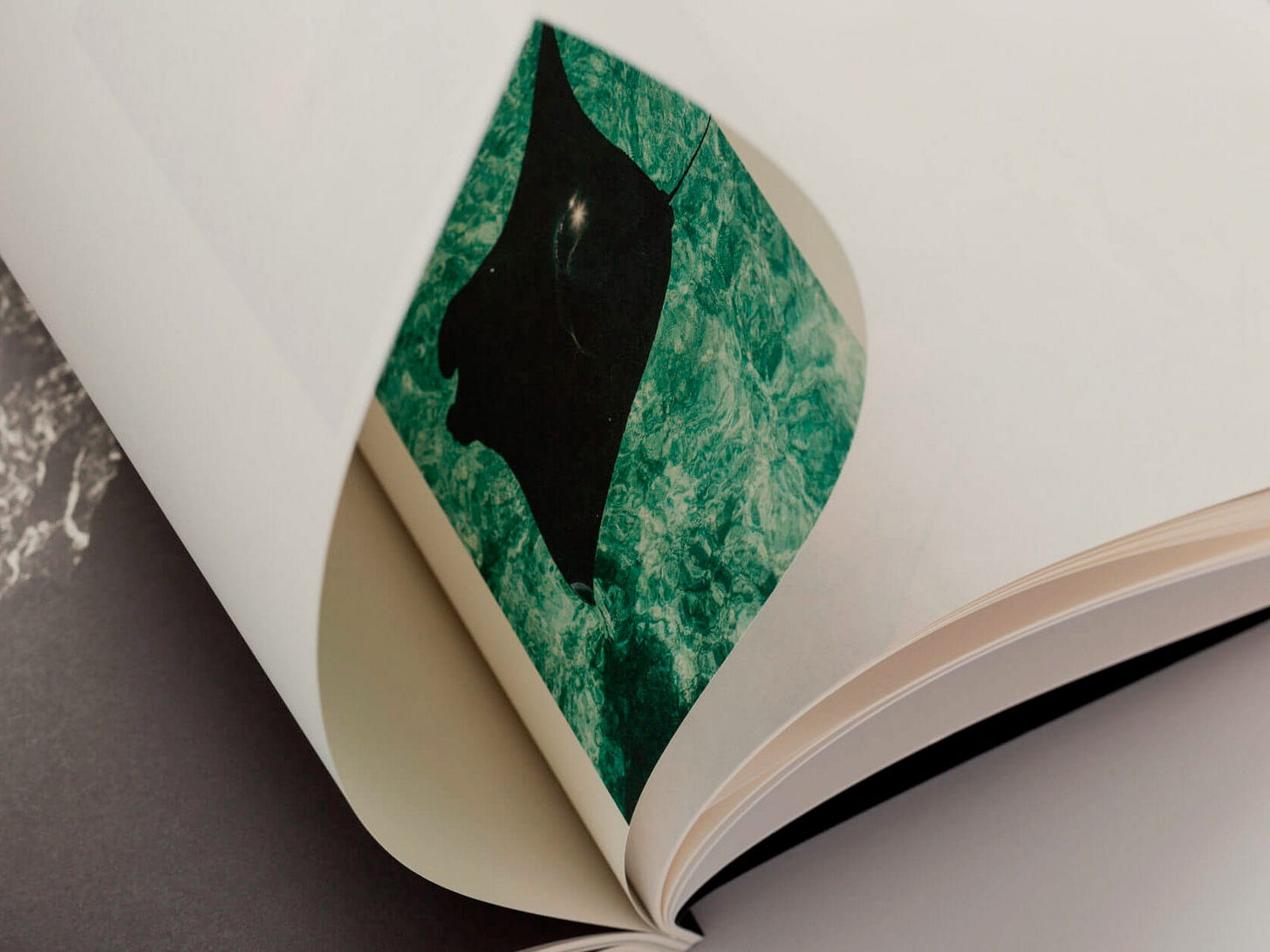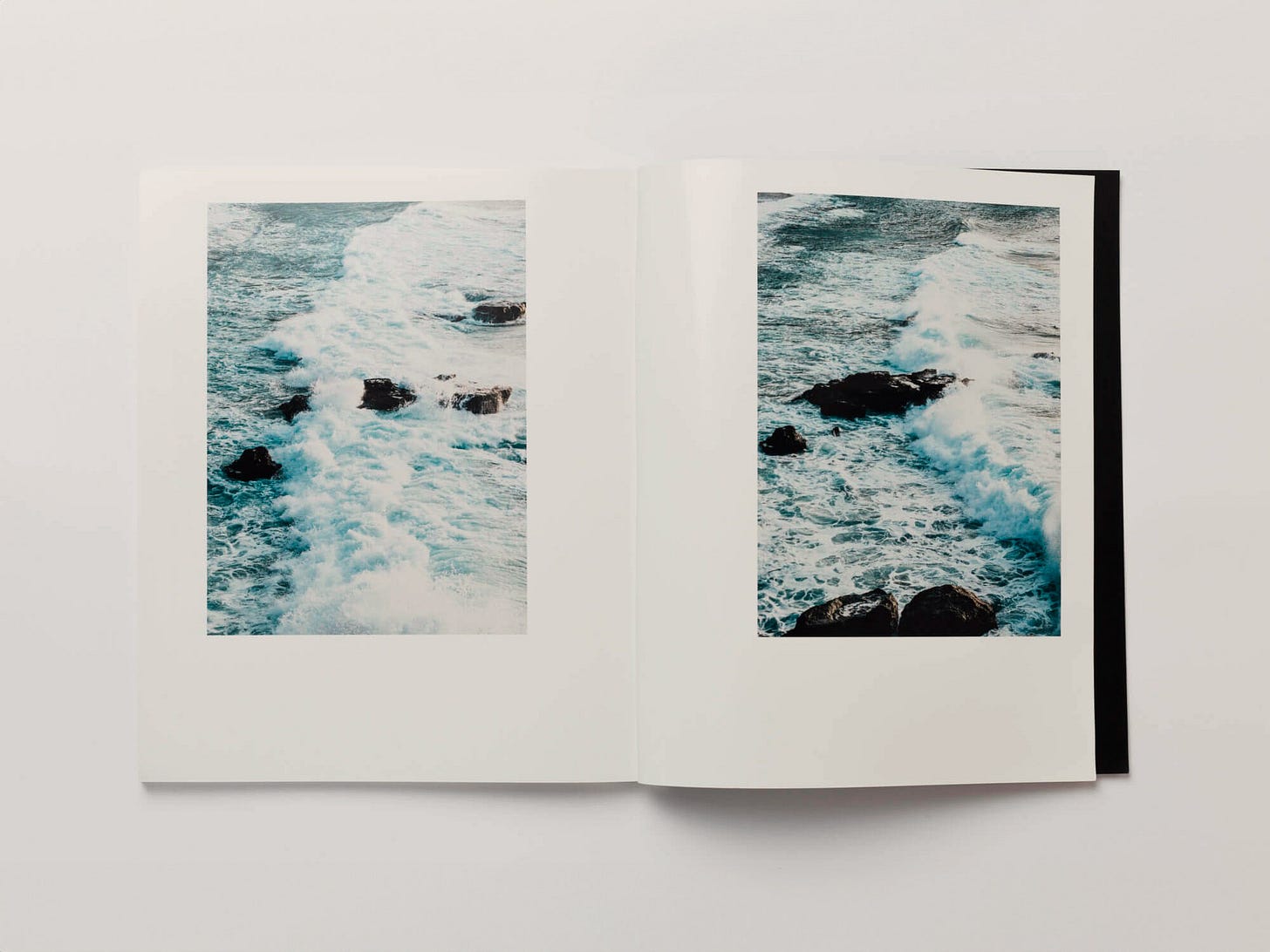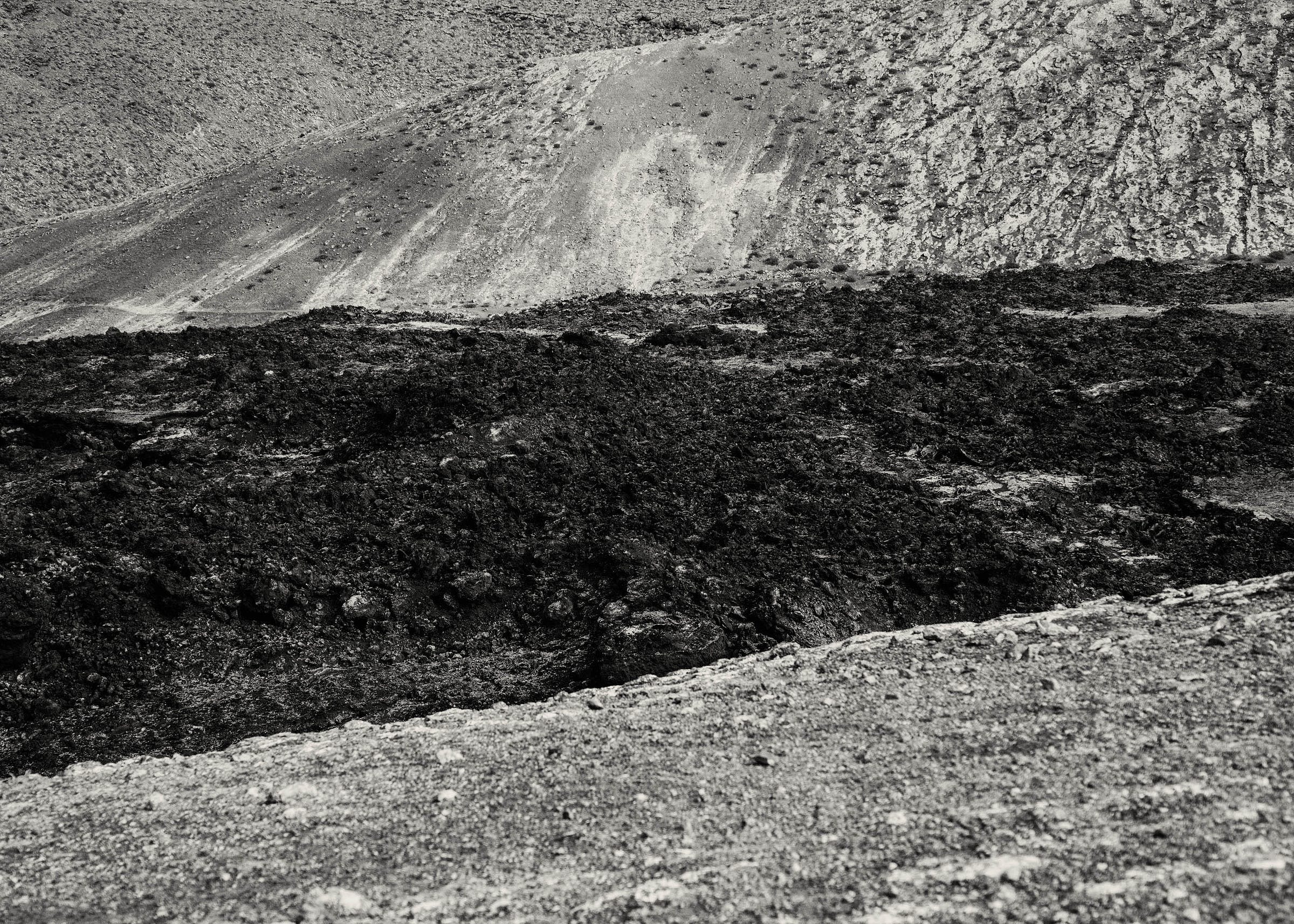ALERTA SPOILER: Esta entrada contiene detalles sobre mi libro ILLA que podrían influir en la experiencia de leerlo sin prejuicios. Por lo tanto, recomiendo verlo antes de continuar con esta lectura. Aunque el libro se ha agotado en la página web de la editorial y en la mayoría de tiendas, todavía es posible adquirir la edición especial en la web de HEREU.
SPOILER ALERT: This post contains details about my book ILLA that could influence the experience of reading it without prior biases. Therefore, I recommend reviewing it before continuing with this reading. Although the book is sold out on the publisher's website, it is still possible to acquire the special edition at the HEREU store.
En octubre de 2014, me rompieron el corazón. Aunque ya había experimentado rupturas antes, alguna significativa después de años de relación, nunca me había hundido en un pozo tan profundo, intentando mitigarlo a base de fiesta, sexo y algo de alcohol, incluso forzando a que me gustará la cerveza, bebida que siempre he detestado.
No entendía nada. ¿Cómo podía sucederme esto a mí? ¿Qué había hecho mal?
Todo comenzó a principios de ese año, cuando partimos rumbo a Japón con Caterina, mi pareja. Planeamos visitar el país nipón unas semanas para luego ir a Taiwán, isla donde ella se quedaría por unos seis meses en un intercambio universitario. Durante esos meses, nos reencontramos en un viaje a Indonesia, con unos encuentros y despedidas dignos de telenovela romántica. Nada parecía indicar que nuestra relación se pudiera tambalear por los 11.000 km que nos separaban. Y así fue, al menos durante esos meses.
El verano lo pasamos entre Menorca y Mallorca, completamente ajeno a lo que estaba por suceder. Llegó septiembre, y Caterina partió hacia Ámsterdam para quedarse otros seis meses; esta vez no iba sola, sino que compartiría habitación con una de sus mejores amigas de la universidad. Ámsterdam, no es Taipei y había una vocecita dentro de mí que empezaba a inquietarme, pero no le presté mucha atención, para evitar que me tildaran de celoso o malpensado. En esas semanas, cayó en mis manos un artículo profético de Salvador Sostres titulado ‘Erasmus’. Me reí bastante al leerlo, pensando que eso no me podría suceder a mí, que lo nuestro era sólido, ya habíamos pasado más de medio año distanciados, pero la misma vocecita seguía advirtiéndome.
Como bien narra Sostres, ella empezó cada vez a estar más ausente. Las discusiones iban en aumento. ¿Por qué no me coges el teléfono ni me contestas los whatsapps? En octubre, ella volvía a Barcelona por unos días, y como un loser, fui a recibirla al aeropuerto. Aún suerte que no compré flores. No recuerdo silencio más incómodo en mi vida que esa vuelta a casa en el Aerobús.
A las pocas horas, la clásica bomba estallaba; '“no eres tú, soy yo. Necesito tiempo”. Era todo tan cliché, que parecía una broma. Pero su cara, siempre su cara, no daba pié a la duda.
Aunque en aquel entonces no lo sabía a ciencia cierta, había conocido a otro, lo normal en un Erasmus. Estoy con Sostres, parejas del mundo, si queréis conservar vuestra relación no lo hagáis. Aunque, reflexionando, podría ser una buena prueba, no de celibato, sino de perdón y aceptación de la naturaleza humana.
Personalmente, acercarme al borde de la depresión y conocer esta parte oscura de mí, me ayudó a desarrollar estrategias para evitar caer de nuevo. Una de ellas es cultivar cierto desapego hacia el futuro, las personas y los objetos, intentando vivir más el presente y asumiendo de alguna manera que todo está perdido. El pozo sigue ahí, tapado, y sería extraño que en algún momento futuro no se abriera de nuevo. Pero lejos de ser una actitud derrotista, esto me hace valorar más el día a día, en una especie de apatía estoica. Soy un firme defensor del memento mori, o como he hablado ya en anterioridad, de la actitud zen de mushotoku, teniendo siempre presente nuestro destino, consciente de que al final seremos “derrotados”. Todo lo que somos y hemos construido se desvanecerá. Hay que luchar por cada instante, pero sin olvidar que todo es efímero, intentar no perder nunca de vista el asombro hacía el misterio de estar vivos, aquí y ahora. En mi caso, esta visión en apariencia desalentadora, siempre me ha generado una extraña tranquilidad.
Esta conciencia de la efimeridad no solo enseña a valorar cada momento, sino que también nos abre a la trascendencia, al entendimiento de que nuestras vidas, aunque breves, pueden resonar más allá de nuestra existencia física. Al aceptar la impermanencia, encontramos libertad para vivir con plenitud, dejando huellas que perduran en aquellos a quienes tocamos. Es en esta intersección entre la apatía estoica y la búsqueda de significado donde se revela la verdadera trascendencia: en cómo elegimos vivir, amar y dejar un legado que trascienda nuestro tiempo limitado en la tierra.
Así que en diciembre de 2014, en mi peor momento, decidí hacer un viaje a la isla canaria de Lanzarote. Quería intentar aprovechar mi situación para crear algo, aunque parte de mi motivación era darle envidia. Lo que recuerdo peor de esa época, eran las estrategias para no parecer desesperado, lanzando mensajes intentando llamar su atención. Elegí Lanzarote porque de alguna manera representaba mi estado mental en un plano geográfico; un lugar árido, volcánico, rocoso y aparentemente sin vida.
Allí escribí algo a modo de desahogo, que volviendo a ello me da bastante vergüenza, pero como en este lugar pretende ser sincero, creo que es importante para este relato, ya que con el tiempo, si las cosas han ido bien, la memoria se adultera, y hay que recordar que fueron tiempos duros. Así que, ahí van algunos extractos.
Caterina, ¿por qué? Al final, no sé de qué me asombro. Desde el día 15 de enero de 2012, el día que te conocí en el Apolo, supe que algo parecido iba a pasar. El amor verdadero no puede surgir en una discoteca. Aquella noche, algo se encendió en mí: volver a sentir esa pasión, el sexo embriagador, el chute de endorfinas que hacía años no experimentaba, ese olor a sexo por todas partes. Fui preso una vez más, de esa gran mentira que es el amor romántico. Me enamoré, en un momento del que seguramente no estaba preparado. Sé que lo hice mal, y que quizás esto es una jugada del karma, o directamente me la quieras devolver. Ok, seguramente me lo merezca.
Hoy, día 44, estoy en Lanzarote, intentando no pensar en ti sobre una cama de piedras volcánicas. Parece que el magnetismo de las piedras facilita un sueño placentero, en armonía con el cosmos. Habrían podido, al menos, comprar un colchón en condiciones para mentir mejor al personal. Maldigo el cosmos y el magnetismo cada vez que un muelle se me clava en el costado o en la pierna.
Siento bastante vergüenza porque este sea el peor momento de mi vida. Te han dejado, acéptalo. Lástima que mi estómago no pueda. Ahora entiendo por qué la gente bebe, se droga, va al gimnasio, hace yoga o se apunta a sectas. También entiendo las letras de las canciones; "Crujidos" de Nacho Vegas ha sido la banda sonora de estos 44 días. Al final, mi situación es algo que el 99,9% de los mortales ha experimentado; supongo que a mis 30 no podía escapar de ella. Pienso que, en un futuro, será positivo; habré aprendido cosas sobre mí, vivido nuevas experiencias… Aunque, por ahora, eso no me consuela en absoluto.
La idea del viaje a Lanzarote era desconectar, ir a un lugar desolado, hacer fotos, sentirme mal, intentar odiarte un poco y así no caer en tu trampa cuando vuelvas en 11 días. Pero todo ha sido un desastre. El mal de nuestro siglo se llama redes sociales; es imposible desconectar: Facebook, WhatsApp, Instagram... Estos días he hablado más contigo que en las últimas semanas. Como era de esperar, te ha molestado que esté aquí sin ti, disfrutando de 22 grados, mientras te congelas en Ámsterdam. En parte, es lo que quería, pero esa pequeña satisfacción se esfuma cuando pienso que puedes entrar en calor con tu nuevo amante, a quien sigues viendo, aunque digas que me quieres y mantengas intenciones de continuar conmigo cuando vuelvas.
¿Cómo has podido olvidarte de lo que teníamos? Nuestros viajes, conversaciones, despedidas, nuestro amor... ¿y arruinarlo de esta manera? Si al menos lo haces, hazlo bien y déjame vivir, no me hables cada dos o tres días como si no pasase nada, diciéndome que me echas de menos, que me quieres, que solo es una fase, la maldita fase Erasmus. Tengo ganas de decirte que te vayas a la mierda, que me has perdido para siempre, no quiero volver a verte nunca más.
Aquí realizo un salto temporal para retomar el tema de mi anterior entrada sobre ‘ mi proyecto fracasado, 'La cortina verde'. Había contactado a Eloi Gimeno para que diseñara el libro, pero finalmente decidí no llevar a cabo el proyecto, a pesar de haberle pagado ya una buena parte del diseño. Así que recopilé todas las fotos que había tomado durante esos viajes románticos a diferentes islas con Caterina (Japón, Taiwán, Singapur, Bali, Komodo, Menorca y Mallorca), además de las de Lanzarote, y se las envié a Eloi. Veía potencial para hacer algo, y así fue como al poco tiempo me presentó su idea de ILLA.
ILLA, que significa isla en catalán —también me gusta por su similitud fonética con 'Ella'— propone un juego visual con las fotos tomadas en Lanzarote, transformadas en blanco y negro, y las imágenes de las otras islas, a color, pero ocultas en los pliegues del papel. Este efecto de ocultamiento, logrado gracias al tipo de encuadernación japonesa, me pareció muy atractivo y metafórico. Para poder apreciar estas imágenes, sería necesario romper los pliegues del libro o —mi opción favorita— iluminar las páginas a contraluz.
Aunque estas ideas evolucionaron durante el proceso de diseño, todas surgieron de manera bastante rápida y espontánea. El libro, como objeto, debía transmitir una sensación de fragilidad; para ello, utilizamos grapas a modo de heridas y un papel de portada con una textura que recuerda a la piedra volcánica. El mayor desafío fue encontrar el papel interior adecuado, uno que permitiera entrever las fotos ocultas, que aportara calidez y que mantuviera cierta calidad para reproducir las gamas de grises de las fotos de Lanzarote. Tras mucho buscar apareció uno a última hora propuesto por Apograf, la imprenta. Gracias también al trabajo de La troupé, expertos en preparar las fotos para la impresión, quedó un resultado realmente bueno.
Nos llevó alrededor de unos 3-4 meses finalizar el proceso de edición del libro. Mientras tanto, Caterina había vuelto ya de Ámsterdam y lo que iba a ser un libro sobre una ruptura, acabó teniendo un final feliz. Retomamos nuestra relación y así hemos seguido hasta el día de hoy, incluida nuestra pequeña Cèlia, que en unos meses cumplirá dos años. De alguna manera, esto se tenía que reflejar en el libro, y un epílogo final en papel satinado con fotografías de olas rompiendo en la playa de El Golfo, simboliza ese incierto retorno. Además de algunos detalles interiores, como una suerte de herida por el tubo de escape de una moto en Bali que se repite a lo largo del libro.
También había que pensar en quién iba a publicar esto. La primera opción era autoeditarlo, pero temía que yo fuera un desastre en la distribución y venta online. Una amiga, la fotógrafa Rita Puig-Serra, en aquel momento coeditora de la editorial Terranova, se enteró de que estábamos barajando opciones y se lo presentó a su jefe, Luis Cerveró. Quedamos un día para comer con él, y allí cerramos el trato; ellos se encargarían de todo, aunque yo no vería un euro de todo aquello. Suele ser algo común en el mundo editorial, al menos el del fotolibro. Uno ya tiene suficiente en dar las gracias para que lo publiquen. No digo que me parezca mal.
Y toda esta parrafada contrasta con el libro, ya que allí no aparece ni una sola palabra sobre lo que he contado aquí, más allá de los nombres de las islas y una postal escrita por el editor. Personalmente, me gustan los fotolibros que no contienen mucho texto, creo que la fotografía tiene su propia manera de comunicar, extremadamente subjetiva. Uno puede captar algunas de las ideas que propone el autor, pero si hay algo por lo que me gusta este formato es por la interpretación personal que cada uno hace de lo que ve. Para mí, esa es su mayor virtud y seguramente su mayor desventaja a la hora de hacerlo comercial. Por eso, creo que el fotolibro nunca llegará a ser popular salvo algunas excepciones. La gente, en general, prefiere los cotilleos y seguramente todos los detalles contados aquí interesaran más a la gran mayoría, que una mirada poética y fotográfica de una ruptura.
Nunca imaginé que este sería mi primer libro y más después de tantos años trabajando en 'La cortina verde'. Un libro con fotografías de paisajes en blanco y negro y de recuerdos de viajes exóticos sobre una ruptura sentimental no era lo que tenía en mente para triunfar en la fotografía contemporánea. Tengo que admitir que, en algún momento, tuve el objetivo de hacer un libro que entrase en las famosas listas de Photo-eye, estudiando cuál era la fórmula para que eso sucediese. Pero sentí una gran liberación al publicar ILLA, fuera de toda presión, de toda expectativa. Aquí no había pretensión alguna y, aunque sabía que no tenía ninguna posibilidad de ser elegido uno de los mejores fotolibros del año, me daba absolutamente igual. Recuerdo estar en Polycopies firmando libros en la edición 2015 de Paris Photo y no firmar ni uno. Pero lejos de sentir rabia porque nadie prestaba atención a mi libro, esta bajada a la realidad me hizo gracia.
También a nivel personal, me ayudó como una especie de terapia para superar esa ruptura momentánea y volver a confiar en mi relación con Caterina. Como creo haber comentado en anteriores entradas, los golpes son necesarios, así que gracias, Caterina, por aquellos meses.
A partir de allí, abandoné momentáneamente mis proyectos personales y me focalicé en trabajar como fotógrafo comercial. Sabía que tenía talento para ello y quería ganar dinero para así no tener que depender de nada ni nadie y, en un futuro, volver a mi parte más artística cuando me sintiera completamente libre. Aunque caí durante un tiempo preso de otra trampa, la del dinero, me ha ido bastante bien.
Y así llegamos al 2024, donde finalmente me considero libre para volver a crear. Libre de toda presión, de toda tendencia, de toda audiencia.
Libre para crear sin esperar nada.
Para la presentación del libro hicimos una pequeña expo en la desaparecida sala de exposiciones, tienda y cafeteria Wer-haus en Barcelona. Agradecer a Dani Pujalte todo su apoyo para que esto fuera posible.
Mencionar también el precioso texto sobre la presentación y el libro que escribió Alex Llovet en su antiguo blog.
Y gracias Jose (Yosigo) por aguantarme esos meses.
Quisiera finalizar dedicando unas palabras a Eloi. Dondequiera que te encuentres, gracias por putearme y dar lo mejor de ti. Por las noches de FIFA y pizzas Doctor Oetker. Aunque nunca supe tu opinión sincera sobre este libro, el cual considerabas una cursilada, siempre he creído que aquí hay más de ti que de mí.
Editorial Terranova
Año 2016
ISBN 978-84-944187-4-7
Primera edición de 750 copias
Encuadernación cosida y encolada en tinta negra
Páginas: 33 dípticos + 1 díptico desplegable + 10 páginas + cubiertas
Impreso en papel Arcoprint Milk y Creator Gloss
Cubiertas en Curios Matter Black Truffle con barniz
Tamaño 242 x 320 mm
Diseñado por Eloi Gimeno
In October 2014, my heart was shattered. Although I'd faced breakups before, including a significant one after years together, I had never plunged into such a deep abyss, attempting to dull the pain with parties, sex, and a bit of alcohol, even forcing myself to like beer, a drink I've always loathed.
I was baffled. How could this happen to me? What had I done wrong?
It all started earlier that year when Caterina, my partner, and I set off for Japan. We planned to visit for a few weeks before heading to Taiwan, where she would spend about six months on a university exchange. During those months, we reunited in Indonesia, with meetings and farewells straight out of a romantic soap opera. Nothing hinted at our relationship being shaken by the 11,000 km between us. And so it was, at least during those months.
We spent the summer between Menorca and Mallorca, completely oblivious to the looming storm. Come September, and Caterina was off to Amsterdam to stay another six months; this time, she wasn't alone but would share a room with one of her best university friends. Amsterdam isn't Taipei, and a small voice inside me began to worry, but I ignored it to avoid being labeled jealous or paranoid. During those weeks, I stumbled upon a prophetic article by Salvador Sostres titled 'Erasmus'. I laughed it off, thinking it couldn't happen to me, that we were solid. We'd already endured more than half a year apart, but the warning voice persisted.
As Sostres narrates, she began to drift away. Arguments escalated. Why aren't you answering your phone or my messages? In October, she was to return to Barcelona for a few days, and like a loser, I greeted her at the airport. Lucky I didn't buy flowers. I can't recall a more uncomfortable silence than that ride home on the Aerobus.
Hours later, the classic bomb dropped; "it's not you, it's me. I need time." It was so cliché, it felt like a joke. But her face, always her face, left no room for doubt.
Though I didn't know for sure at the time, she had met someone else, typical for an Erasmus. I agree with Sostres, couples of the world, if you want to preserve your relationship, don't do it. Though, upon reflection, it could be a good test, not of celibacy, but of forgiveness and acceptance of human nature.
Personally, teetering on the brink of depression and encountering this dark side of myself helped me develop strategies to avoid falling again. One is cultivating a certain detachment towards the future, people, and objects, trying to live more in the present and somehow accepting that everything is lost. The pit remains, covered, and it would be odd if it didn't open again at some future point. But far from being a defeatist attitude, this makes me appreciate the day-to-day more, in a kind of stoic apathy. I am a firm believer in memento mori, or as I've previously discussed, the Zen attitude of mushotoku, always mindful of our end, aware that in the end, we will be "defeated." Everything we are and have built will vanish. We must fight for every moment, but never forget that everything is ephemeral, never losing sight of the wonder of being alive, here and now. To me, this seemingly disheartening view always brings a strange calm.
This awareness of ephemerality teaches us to cherish each moment and opens us to transcendence, to the understanding that our lives, though brief, can resonate beyond our physical existence. By accepting impermanence, we find freedom to live fully, leaving marks that endure in those we touch. It is at this intersection between stoic apathy and the search for meaning that true transcendence reveals itself: in how we choose to live, love, and leave a legacy that transcends our limited time on earth.
So, in December 2014, at my lowest point, I decided to take a trip to the Canary Island of Lanzarote. I wanted to try to use my situation to create something, although part of my motivation was to make her envious. What I remember worst about that time were the strategies to not seem desperate, sending messages trying to get her attention. I chose Lanzarote because in some way it represented my mental state in a geographical plane; an arid, volcanic, rocky place, seemingly lifeless.
There, I wrote something as a way to vent, which looking back on it now makes me quite embarrassed, but since this space aims to be sincere, I believe it's important for this story, as over time, if things have gone well, memories tend to distort, and it's necessary to remember that those were hard times. So, here are some excerpts.
Caterina, why? In the end, I don't know what surprises me. From the day I met you on January 15, 2012, at the Apolo, I knew something like this would happen. True love can't arise in a nightclub. That night, something ignited in me: to feel that passion again, the intoxicating sex, the rush of endorphins I hadn't experienced for years, that scent of sex everywhere. I became a prisoner once again of that great lie that is romantic love. I fell in love at a time when I surely wasn't ready. I know I did wrong, and maybe this is karma's doing, or you just want to pay me back. Ok, I probably deserve it.
Today, day 44, I'm in Lanzarote, trying not to think of you on a bed of volcanic stones. It seems the magnetism of the stones facilitates a pleasant sleep, in harmony with the cosmos. They could have at least bought a proper mattress to lie to people more convincingly. I curse the cosmos and magnetism every time a spring digs into my side or leg.
I'm quite embarrassed that this is the worst moment of my life. You've been left, accept it. Too bad my stomach can't. Now I understand why people drink, take drugs, go to the gym, do yoga, or join cults. I also understand the lyrics of songs; "Crujidos" by Nacho Vegas has been the soundtrack of these 44 days. In the end, my situation is something that 99.9% of mortals have experienced; I guess at my 30s, I couldn't escape it. I think that, in the future, it will be positive; I'll have learned things about myself, lived new experiences... Although, for now, that's no consolation at all.
The idea of the trip to Lanzarote was to disconnect, go to a desolate place, take photos, feel bad, try to hate you a little so as not to fall into your trap when you return in 11 days. But everything has been a disaster. The malaise of our century is called social media; it's impossible to disconnect: Facebook, WhatsApp, Instagram... These days I've talked to you more than in the last weeks. As expected, you're annoyed that I'm here without you, enjoying 22 degrees, while you freeze in Amsterdam. Partly, that's what I wanted, but that small satisfaction vanishes when I think that you can warm up with your new lover, whom you continue to see, even though you say you love me and intend to continue with me when you return.
How could you forget what we had? Our trips, conversations, farewells, our love... and ruin it like this? If you're going to do it, at least do it right and let me live, don't talk to me every two or three days as if nothing happened, telling me you miss me, that you love me, that it's just a phase, the damn Erasmus phase. I feel like telling you to go to hell, that you've lost me forever, I never want to see you again.
Here, I make a temporal leap to revisit the topic of my previous entry about 'my failed project, "The Green Curtain." I had contacted Eloi Gimeno to design the book, but ultimately decided not to carry out the project, despite having already paid him a significant portion for the design. So, I compiled all the photos I had taken during those romantic trips to different islands with Caterina (Japan, Taiwan, Singapore, Bali, Komodo, Menorca, and Mallorca), in addition to those from Lanzarote, and sent them to Eloi. I saw potential to make something, and that's how, shortly after, he presented his idea for ILLA.
ILLA, which means island in Catalan —I also like it for its phonetic similarity to 'She' in Catalan— proposes a visual play with the photos taken in Lanzarote, transformed into black and white, and the images of the other islands, in color, but hidden in the folds of the paper. This effect of concealment, achieved through Japanese binding, seemed very attractive and metaphorical to me. To appreciate these images, it would be necessary to break the folds of the book or —my favorite option— illuminate the pages against the light.
Although these ideas evolved during the design process, all emerged quite quickly and spontaneously. The book, as an object, had to convey a sense of fragility; for this, we used staples as wounds and a cover paper with a texture reminiscent of volcanic stone. The biggest challenge was finding the right interior paper, one that would allow a glimpse of the hidden photos, provide warmth, and maintain a certain quality to reproduce the gray scales of the Lanzarote photos. After much searching, one appeared at the last minute proposed by Apograf, the printer. Thanks also to the work of La troupé, experts in preparing the photos for printing, the result was really good.
It took us about 3-4 months to finalize the editing process of the book. Meanwhile, Caterina had already returned from Amsterdam, and what was going to be a book about a breakup ended up having a happy ending. We resumed our relationship and have continued to this day, including our little Cèlia, who will be two years old in a few months. Somehow, this had to be reflected in the book, and a final epilogue on glossy paper with photographs of waves breaking on El Golfo beach symbolizes that uncertain return. In addition to some interior details, such as a sort of wound from the exhaust pipe of a motorcycle in Bali that repeats throughout the book.
We also had to think about who would publish this. The first option was to self-publish, but I was afraid that I would be a disaster in distribution and online sales. A friend, photographer Rita Puig-Serra, who was co-editor of the Terranova publishing house at the time, heard that we were considering options and presented it to her boss, Luis Cerveró. We met one day for lunch with him, and there we sealed the deal; they would take care of everything, although I wouldn't see a euro from all of it. This is common in the publishing world, especially for photobooks. One is usually thankful enough to be published. I'm not saying I find it wrong.
And all this talk contrasts with the book, as it doesn't contain a single word about what I've told here, beyond the names of the islands and a postcard written by the editor. Personally, I like photobooks that don't contain much text, as I believe photography has its own way of communicating, extremely subjective. One might grasp some of the ideas proposed by the author, but what I like about this format is the personal interpretation each person makes of what they see. For me, that's its greatest virtue and probably its greatest disadvantage when it comes to commercialization. That's why I believe photobooks will never become popular except for some exceptions. Generally, people prefer gossip, and surely all the details told here would interest the majority more than a poetic and photographic look at a breakup.
I never imagined this would be my first book, especially after so many years working on "The Green Curtain". A book featuring black and white landscape photographs and memories of exotic trips centered around a breakup wasn't what I had in mind for success in contemporary photography. I must admit that at one point, my goal was to produce a book that would make it onto the famous Photo-eye lists, analyzing what the formula was for that to happen. But releasing ILLA felt like a massive liberation from all pressure and expectations. There were no pretensions here, and although I knew it had no chance of being selected as one of the best photobooks of the year, I absolutely didn't care. I remember being at Polycopies signing books during the 2015 edition of Paris Photo and not signing a single one. Far from being angry because no one paid attention to my book, this return to reality amused me.
On a personal level, it served as a sort of therapy to get over that temporary breakup and trust in my relationship with Caterina again. As I believe I've mentioned in previous entries, setbacks are necessary, so thank you, Caterina, for those months.
From there, I temporarily abandoned my personal projects and focused on working as a commercial photographer. I knew I had the talent for it and wanted to earn money so as not to depend on anything or anyone, and in the future, return to my more artistic side when I felt completely free. Although I fell into another trap, that of money, for a while, it has gone quite well for me.
And so we arrive at 2024, where I finally consider myself free to create again. Free from all pressure, all trends, all audiences.
Free to create without expecting anything.
For the book launch, we hosted a small exhibition at the now-defunct Wer-haus exhibition space, store, and café in Barcelona. A big thank you to Dani Pujalte for all his support in making this possible.
Also, a special mention to the beautiful piece about the presentation and the book written by Alex Llovet on his former blog.
And thanks to Jose (Yosigo) for putting up with me during those months.
I'd like to conclude by dedicating a few words to Eloi. Wherever you are, thank you for pushing me and giving your best. For the FIFA nights and Dr. Oetker pizzas. Although I never knew your honest opinion about this book, which you considered cheesy, I've always believed there's more of you in it than me.
Published by Terranova
Year: 2016
ISBN: 978-84-944187-4-7
First edition of 750 copies
Stitch and glue binding in black ink
Pages: 33 diptychs + 1 fold-out diptych + 10 pages + covers
Printed on Arcoprint Milk and Creator Gloss paper
Covers in Curious Matter Black Truffle with varnish
Size: 242 x 320 mm
Designed by Eloi Gimeno

